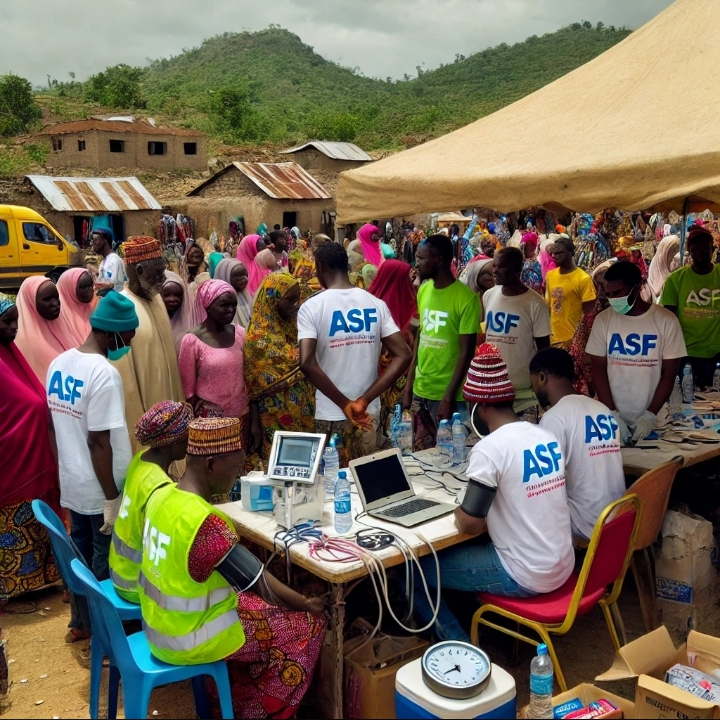By Oveimeh-Brown Alfredo
Growing up in a close-knit Nigerian community, Amina Mohammed heard stories about witches who haunted their victims in their sleep, strangling them to the point of near-paralysis. One night after she woke up suddenly from sleep, she felt a crushing heaviness on her chest. At the edge of her vision loomed shadowy figures. Her breath came fast. Was she being attacked by the witches of her childhood stories?
Amina was convinced that something supernatural had taken hold of her. She spent the following days in panic, afraid that she might be “pressed” by the witches that she had read about. The experience left her shaken, unsure of how to explain it beyond the superstitions she had grown up with. She tried to avoid sleep, but the more she resisted, the more terrifying episodes seemed to occur.
Then she confided in a friend about her experience and her prevailing fears. Her friend suggested that Amina’s experiences might be explained by sleep paralysis, a phenomenon where the body remains temporarily paralysed during transitions between sleep stages, often leading to hallucinations and a feeling of being trapped. Curious, Amina delved into more research.
During sleep, the brain sends signals that relax the muscles in the arms and legs. The resulting state—known as muscle atonia—keeps the body still during rapid eye movement (REM) sleep, preventing physical reactions to dreams. So, when a person wakes up before the body fully emerges from this state, as happened in Amina’s case, they can experience what feels like a waking nightmare—complete with hallucinations of dark figures and suffocating pressure on the chest.
In her desperate bid to understand the science behind her distressing experience that night, Amina came in contact with the Abuja Sleep Foundation (ASF). Here, she met Dr. Grace Okoro, a sleep specialist with more than a decade of experience in clinical sleep medicine, who explained the physiological roots of her nightly episodes. Coming to terms with her new-found knowledge, Amina would also attend ASF’s workshops in the capital city, where she learnt effective tips to manage her sleeping troubles.
Founded by Dr. Grace Okoro and Dr. Samuel Ibrahim, both sleep specialists, ASF is working to demystify sleep disorders through education. Its workshops, held across Abuja communities, debunk harmful superstitions that attribute sleep paralysis to witchcraft or spiritual attacks. Gaining a broad understanding of sleep health, participants receive actionable tips to help reduce the frequency of sleep paralysis episodes.
It was at one of these workshops that Amina would come to dispel her myths about midnight witches and “pressing.” In time, her episodes of sleep paralysis disappeared.
Today, Amina sleeps peacefully, free from the grip of superstition and fear. Her story highlights the transformative power of education and the importance of addressing myths with science. Her journey with ASF also underscores the broader role that organisations like ASF play in reshaping public perceptions of health issues through dialogues and awareness programmes.
Amina Mohammed grew up in Nigeria hearing tales of witches that strangled their victims in their sleep. One night, she experienced a frightening episode that felt like those stories, leading her to believe she was under a supernatural attack. Terrified and confused, she confided in a friend who introduced her to the concept of sleep paralysis—a condition where the body remains temporarily paralyzed during transitions between sleep stages, often resulting in hallucinations.
Seeking answers, Amina reached out to the Abuja Sleep Foundation (ASF), where Dr. Grace Okoro, a sleep specialist, explained the physiological causes of her experiences. Amina attended ASF workshops, which aimed to debunk sleep-related superstitions and promote sleep health awareness. Through these sessions, she learned how to manage her sleep issues effectively and ultimately dispelled her fears of supernatural interference.
ASF, co-founded by Dr. Okoro and Dr. Samuel Ibrahim, works to address sleep disorders and improve public understanding of sleep health through education and awareness campaigns. Amina’s journey illustrates the power of education to transform fear into understanding and highlights the significant impact organizations like ASF have in changing perceptions and improving health outcomes. Today, Amina enjoys peaceful sleep, relieved of the superstitions that once haunted her.






